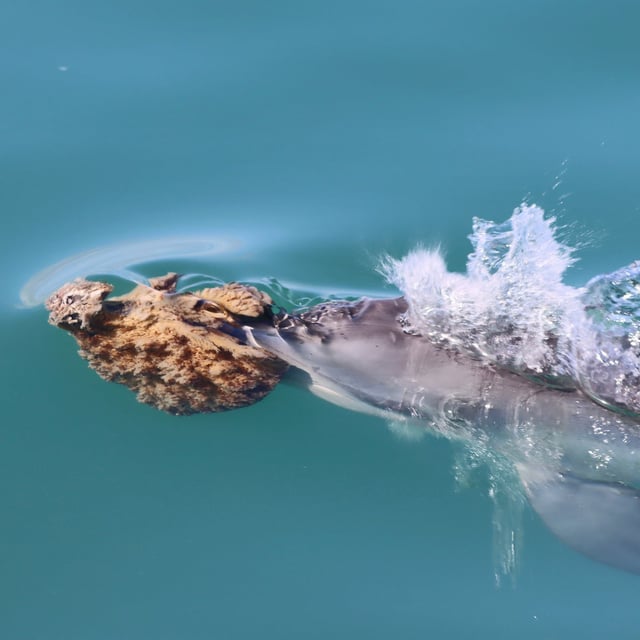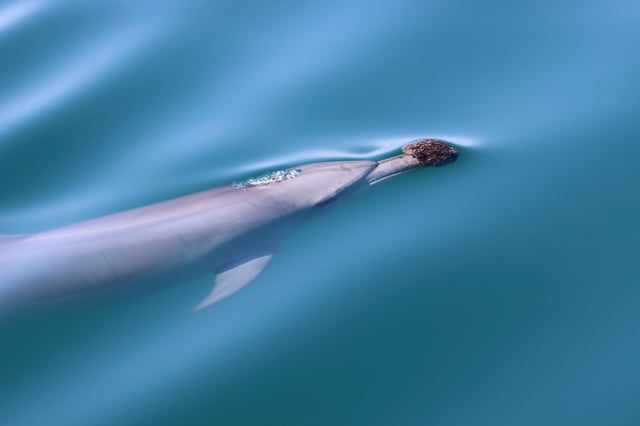Overview
- Marine sponges serve as protective shields on dolphins’ beaks to guard against sharp reef substrate.
- The study used underwater microphones and acoustic modeling to measure how sponges absorb and scatter echolocation pulses.
- Data show that dolphins modify the intensity and frequency of their sonar clicks to maintain prey detection ranges.
- Sponge foraging remains rare, practiced by only about 5 percent of the Shark Bay population, approximately 30 dolphins.
- Calves invest three to four years learning the technique exclusively from their mothers before achieving hunting efficiency.

